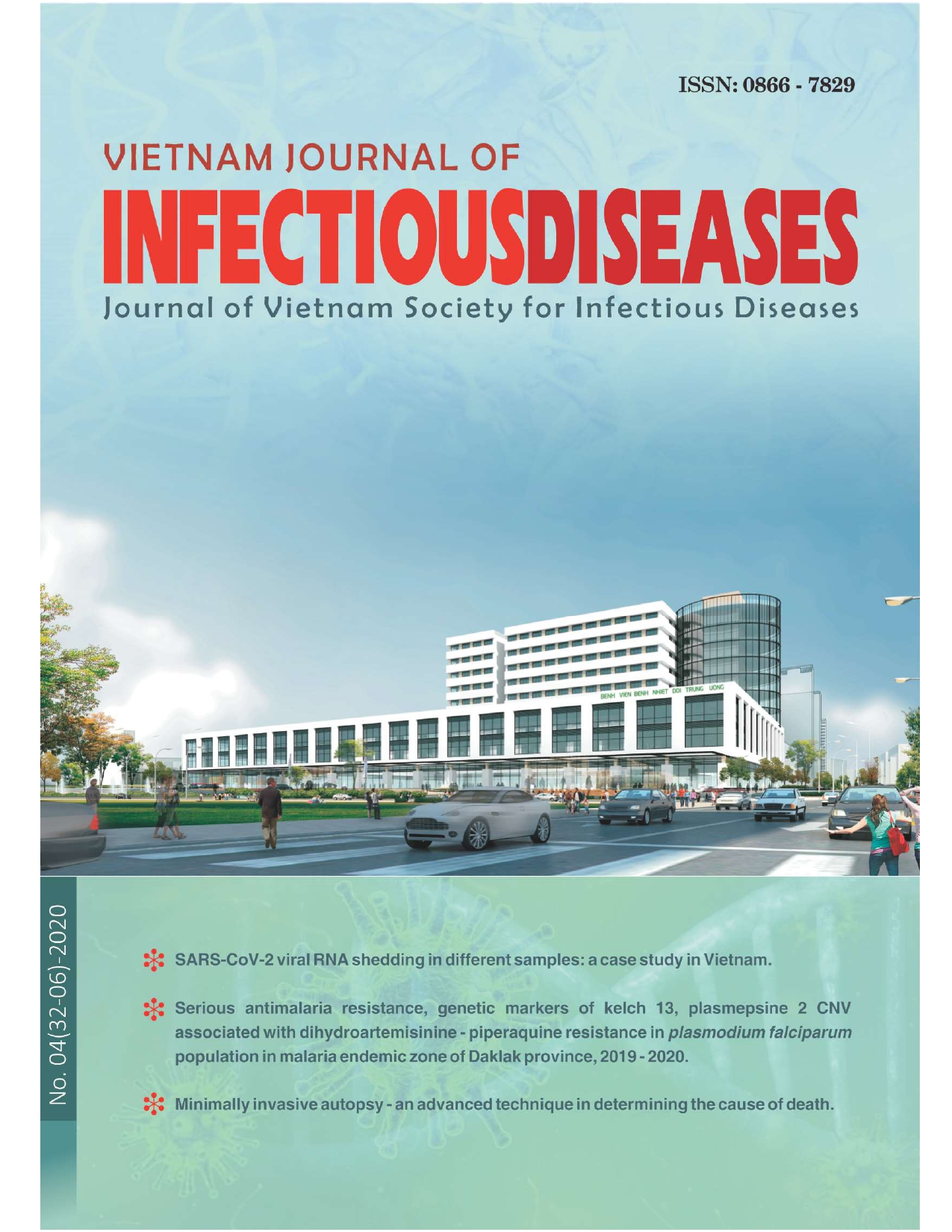CLINICAL, BIOCHEMICAL AND VIROLOGICAL RESPONSES TO ENTECAVIR IN PATIENTS WITH HBV - RELATED CIRRHOSIS
Main Article Content
Abstract
Background: Limited data is available from Vietnam on the outcome and efficacy of entecavir in hepatitis B virus (HBV) - related cirrhosis. This study aims to investigate clinical, biochemical and virological responses in patients with HBV - related cirrhosis treated with entecavir.
Subjects and methods: 93 patients with HBV - related cirrhosis were examined and treated at Danang Hospital from Dec 2016 to June 2019. Of these, 59 patients with compensated cirrhosis and 34 patients with decompensated cirrhosis. Drugs: Entecavir (BaracludeR) was given a dose of 0.5mg and 1mg per day for compensated and decompensated cirrhosis, respectively, 2 hours after breakfast, monitor for 12 months.
Results: Entecavir treatment of 12 months resulted in a marked improvement in common clinical symptoms including anorexia, fatigue, jaundice (p < 0.001) and edema (p < 0.01). Significantly decreased the Child - Pugh score (5.75 ± 1.06 compared to 6.43 ± 1.63 points). Normalized rates of AST and ALT were 67.74% and 78.49%, respectively, of which the compensated cirrhotic group had a higher rate than the decompensated group (AST: 76.27% vs 52.94%; ALT: 88.14% vs 61.76%). The rate of achieving HBV DNA < 20IU/mL increased with time of treatment after 6 months was 34.4% and after 12 months reached 76.3%. There is no significant effect of entecavir on renal function and metabolism of serum calcium and lactate. Conclusion: Entecavir is an effective and safe treatment option for patients with HBV - related cirrhosis, especially exerts a better effect on patients with compensated cirrhosis that may improve the prognosis of cirrhotic patients.
Article Details
Keywords
Entecavir, HBV, cirrhosis


